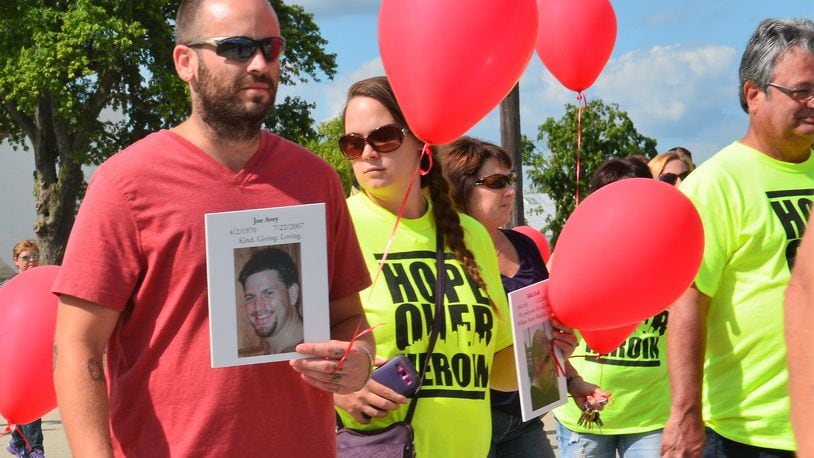“We feel our purpose is still important,” Simmons said as members reviewed efforts since the group’s founding in 2016 in response to the heroin/drug crisis and increases in overdoses and overdose deaths. The group initially was called the Miami County Heroin Coalition.
“We want to get our group going again. We haven’t met in person for a while due to the pandemic,” said Terri Becker, executive director of the Tri-County Board of Recovery and Mental Health Services. The agency serves Miami, Shelby and Darke counties.
Several good projects came out of the coalition’s initial years of work, she said, including the Hope House, a residential detoxification program in Troy; public forums on the heroin epidemic; medically assisted treatment; the Joshua House men’s recovery home in Troy; and the Troy Quick Response Team, and a similar effort in Piqua.
The Quick Response Team is made up of professionals — paramedics, police officers, mental health experts, treatment workers, etc. — who follow up on those who overdose to encourage addressing their addictions.
“We know you have continued your work, but as a group we are stronger,” Becker said. “We want to get the number back down again. We have a lot of hard work, but good work, to do.”
Sue McGatha, a Miami County resident retired from Samaritan Behavioral Health, said it was time for the coalition to “refocus its energy,” so a strategic plan has been developed. Among future goals is doing a better job of communicating with the community about the coalition, she said.
Miami County Sheriff Dave Duchak said the drug problems haven’t gone away during the pandemic.
“In fact, it’s gotten worse,” he said.
Police are seeing a lot of fentanyl and methamphetamines along with a return of cocaine, Duchak said. Between the pandemic and economic insecurity, a lot of substance abuse is occurring, he said.
The number of suicide attempts in the jails is on the rise. In an effort to address mental health issues, the Tri-County Board of Recovery and Mental Health Services has an employee in the jail helping with assessment and addressing needs, Duchak said.
Statistics shared during the program showed four overdose deaths in the county in 2016; 12 in 2017; nine in 2018; seven in 2019; and 10 in 2020. The reported overdoses in 2017 was listed at 124; 88 in 2018; 54 in 2019; and 85 in 2020.
Coalition members said successful efforts will continue along with some new projects.
Simmons talked briefly about new efforts to provide immediate help by opening the fire stations to people, no matter what time of day, who say they are ready to get treatment. The person would receive medical and other assessments for what is needed. A similar program to address mental health issues also may be piloted in the county in coming months, he said.
Contact this contributing writer at nancykburr@aol.com
About the Author
